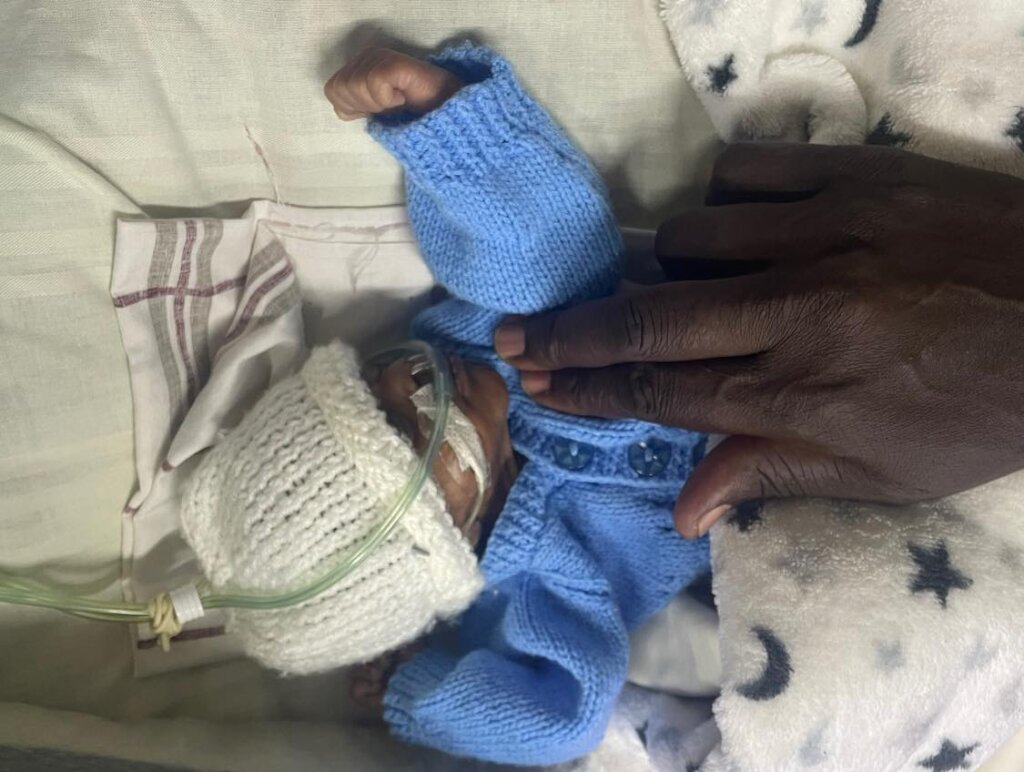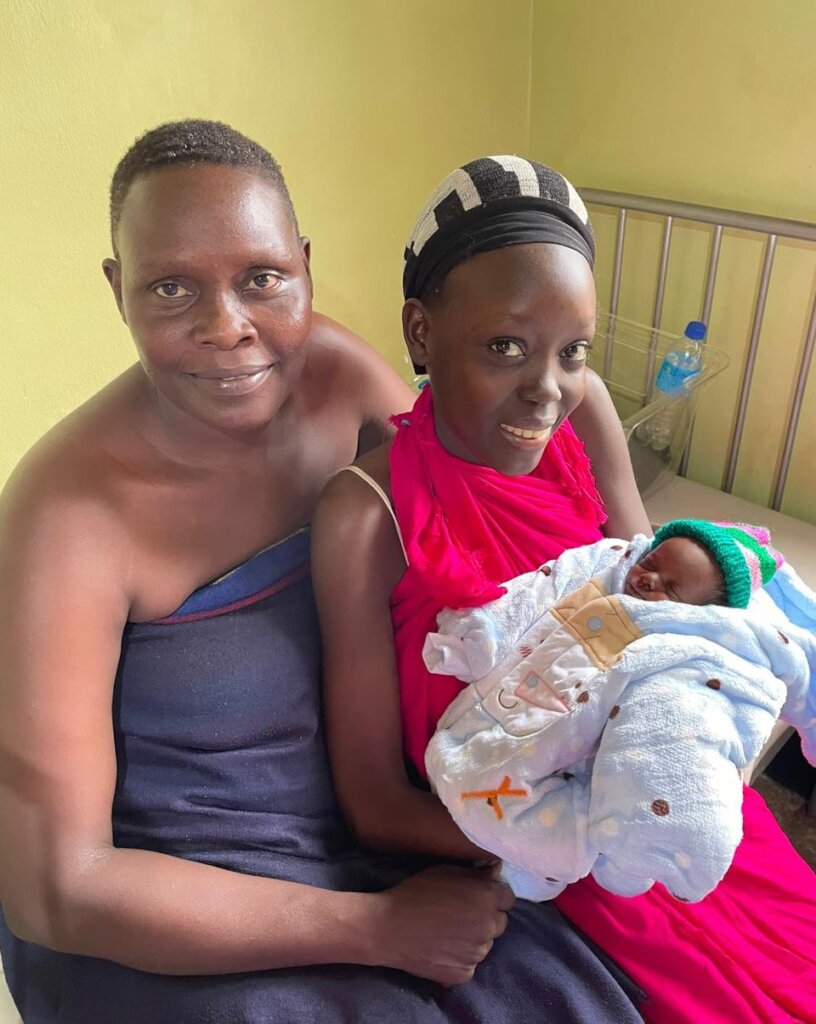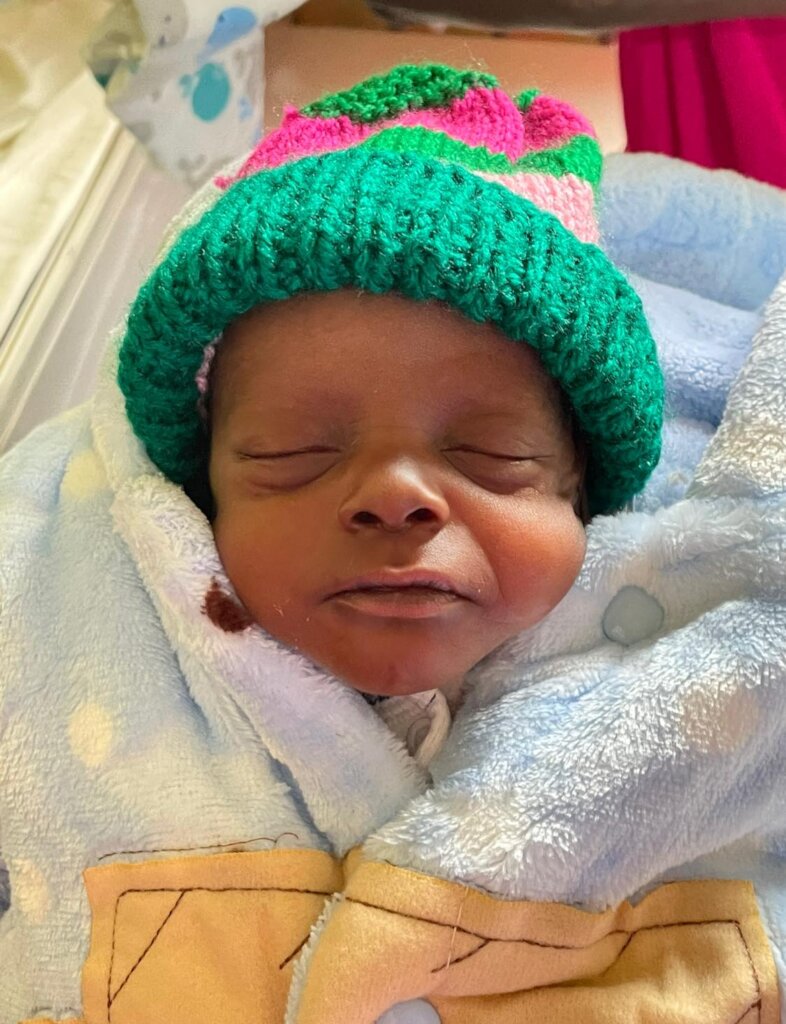Project Report
| Feb 14, 2022
My name is Ajilongo
![]()
“My name is is Ajilongo, I am 25 years old, I suffer from sickle cell disease and I am now a mother. Sickle cell disease is a blood disorder which I inherited from my parents, which means my blood cells (haemoglobin) are damaged and can't carry oxygen to my body properly.
This was my first pregnancy, and despite my sickle cell disease, I managed to carry my pregnancy up until early in my 3rd trimester. By this time I was an inpatient in the gynaecology ward, where I was receiving multiple transfusions for my sickle cell crises. At 31 weeks of gestation, I went into preterm labour, which is a risk for mothers with sickle cell disease. I delivered my twins weighing just 1200g and 1300g. My two tiny babies were quickly rushed to the neonatal unit and immediately put on breathing machines (CPAP).
Sadly my 2nd twin was diagnosed with a heart condition where the blood was not flowing correctly in his heart (PPHN) and this further made his condition detoriate. The doctors tried to give some medicines but all was on vain and my small boy breathed his last breath on day 3.
My surving twin was also not stable and on day 4 was diagnosed with a small whole on the heart (PDA). This made me more worried and anxious and triggered another sickle crisis. I was rushed to another ward for management and my mother took over caring for this surviving twin. It was still a hard battle because this small boy got an infection and kept on having episodes of apnoeas (stopping to breath) and this made my mother have sleepless nights. The doctors kept changing medicines for my small boy and finally he responded to meropenem, but it was really expensive for my family as it wasn’t available in the hospital. We were however really thankful for a donation of the drug caffeine in the neonatal unit to help him remember to breathe. With these drugs, together with the CPAP, he began to improve.
My small boy was on the breathing machine for 4 weeks. During this time I received over 20 blood transfusions for my sickle crisis. I became so unstable, weak and my breastmilk reduced so much, that I didn't have enough breast milk for my baby. I was assisted by screened donor human milk which my mother used to feed my baby with. If all that wasn’t enough, my mother then also developed malaria and she become weak and couldn't manage to give the 2 hourly feeds to my baby. Thankfully, she was supported by the staff on the neonatal unit and other good mothers on ward to help monitor and feed my little boy.
After a period of 7 weeks of battling and struggling to save the life of my small boy, my mother, my baby and I are going home. We send our sincere appreciation to the doctors and nurses in the neonatal unit who worked tirelessly to help my baby survive.”
Born on the Edge are so grateful to all their supporters who allowed this story, and many others, to have the happy endings that they did. However we remain squeezed into a small ward without enough space. This makes our babies vulnerable to hospital acquired infections and prevents us from saving even more lives. Please contribute to our centre of excellence. We need your support.
![]()
![]()
![Share on Twitter]()
![Share on Facebook]()


